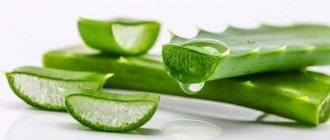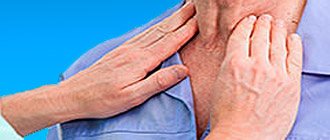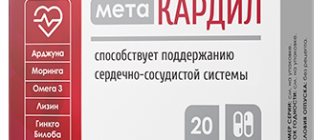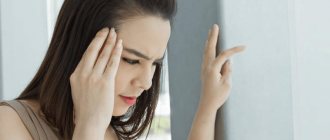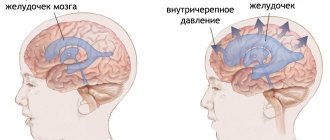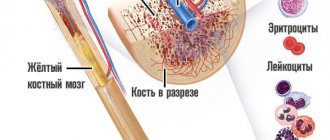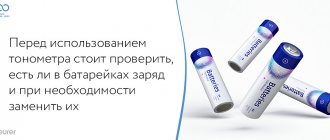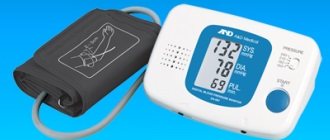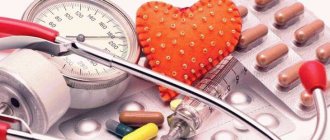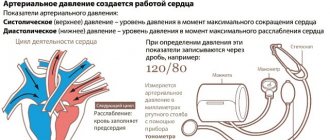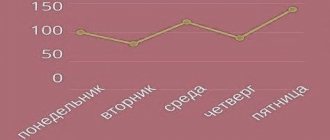According to statistics, an increase in blood pressure is observed in the evening after 16.00–17.00. This phenomenon has many causes, which may include both physiological and pathological factors. Depending on the indicators, a person may experience various symptoms indicating a disorder of vascular regulation. A prolonged increase in blood pressure can provoke the development of serious complications, including cerebral and myocardial ischemia. Why does blood pressure rise in the evening and how to prevent the process?
Category of susceptibility to evening hypertension
Increases in blood pressure (BP) in the evening can occur one-time or become chronic, provoking the development of evening hypertension. There is a certain category of patients whose blood pressure rises only in the evening. This group includes people with the following diseases:
- Disorder of the autonomic nervous system (disturbance in the process of activity and rest affects the functioning of the venous system).
- Interruptions in the functioning of the heart (put additional stress on the arteries).
- ·Hormonal disorders (excessive production of hormones affects the tone of the veins).
- Mental and nervous disorders (constant stress, nervous overstrain).
- Hypodynamia (provokes stagnant processes in the body).
Throughout the day, the cardiovascular system is subjected to heavy loads, especially in people working in unfavorable conditions (exposure to high temperatures, insufficient ventilation of the room, lack of rest). The presence of bad habits and chronic fatigue syndrome only aggravate the manifestations of high blood pressure, which under these conditions can be diagnosed every day.
Blood pressure often increases in the evening if a person has taken energy drinks or caffeinated drinks during the day. Therapy with tincture of Eleutherococcus, ginseng and other herbal medicine with similar effects can also provoke a rise in blood pressure.
Important! In the evening, blood pressure rises in people who are prone to overeating large portions of fried, fatty, and salty foods. After such a meal, indicators can increase by more than 10–12 mm. rt. Art., especially systolic, reaching 140 to 90 mmHg. Art.
Why in the lying position?
There are diseases that few people have heard of. Therefore, people often do not even suspect that they have serious health problems. This is the main argument why blood pressure rises at night when lying down.
One of these diseases is OSA (obstructive sleep apnea syndrome). This is the cessation of pulmonary ventilation for 10 seconds or more. An attack can last 20-30 seconds, and in particularly advanced cases, reach 2-3 minutes and in total reach 60% of sleep time.
Obstructive sleep syndrome at night becomes a regular process when it is preceded by pulmonary apnea during the day with 10-15 repetitions within an hour. The syndrome is accompanied by daytime sleepiness and impaired intellect and memory processes.
Obstructive sleep apnea requires snoring, which accompanies frequent or complete cessation of the respiratory function of the lungs. As a result of gross fragmentation of sleep, the level of carbon dioxide in the blood increases, which explains daytime sleepiness.
The second form of manifestation of obstructive apnea can be called hypopnea. In its phase, complete cessation of breathing does not occur, but it lasts longer and is just as dangerous.
The disease is serious and can interrupt sleep by activating the hypothalamic-pituitary system. There is a change in the activity of the parasympathetic nervous system to the sympathetic one, and it becomes difficult to sleep.
This leads to depressive states, then to heart attacks and strokes, which are preceded by high blood pressure due to hypertension.
Why, if the pressure rises at night precisely in a supine position, is it necessary to urgently consult a doctor? A person with this diagnosis may fall asleep and not wake up.
In this regard, dangerous conditions of apnea and hypopnea require immediate medical attention.
Main reasons
With a systematic or one-time increase in blood pressure, patients are interested in why the pressure rises in the evening. As a rule, in people under 45 years of age, hypertension is provoked by an unhealthy lifestyle, when there are violations of the work and rest schedule, insufficient quantity and poor quality of sleep, abuse of salty foods, lack of physical activity, mental and emotional exhaustion. Also, after 40 years, the activity of some physiological processes decreases as a result of age-related changes. Hormonal imbalance is manifested by the onset of menopause in women and andropause in men. Changes can negatively affect the general condition of the body, since the cardiac and vascular systems are not able to adapt to new conditions in a timely manner, which is reflected in constant fluctuations in blood pressure in the evening.
In addition to provoking physiological factors, there are pathological causes of increased blood pressure, including:
Where do headaches occur due to high blood pressure?
- atherosclerosis;
- osteochondrosis;
- pathologies of the thyroid gland;
- urolithiasis disease;
- gallstone disease;
- inflammatory process of the urinary tract;
- nervous disorders.
Blood pressure may increase in the evening due to cerebral circulatory disorders, when the water-salt balance is disturbed, when fluid retention occurs in the vascular system, causing high blood pressure. In men, an increase in blood pressure at night may indicate the development of benign prostatic hyperplasia, so to rule out the disease it is necessary to undergo a urological examination.
Foods that have a hypertensive effect
Fluctuations in blood pressure are often associated with excess body weight, delayed excretion of fluid from the body, and the presence of cholesterol deposits in the vascular lumen. Therefore, the pressure at night depends on the quality, quantity and method of cooking.
To reduce the risk of high blood pressure, you should avoid drinking caffeine-containing drinks after lunch.
To combat evening hypertension, you should reduce and eliminate the following foods:
- Salty food. Table salt contains sodium, which binds water ions, which leads to an increase in the volume of circulating blood.
- Spices. Aromatic herbs, herbs, and spices, when added to food, contribute to the narrowing of the venous lumen and cause a feeling of thirst.
- Fats. They disrupt lipid metabolism, increasing the concentration of cholesterol in the body, which leads to circulatory disorders. Cholesterol tumors block the arterial lumen, disrupting the flow of nutrients to organs and tissues.
- Carbohydrates. Eating large amounts of sweets and baked goods, especially with butter cream, provokes vascular stenosis.
- Coffee drinks. They have a tonic effect on blood vessels and also remove calcium.
Cervical diseases
Osteochondrosis can cause blood pressure in the evening. The cervical canals carry arteries that supply nutrients and oxygen to the brain. With degenerative changes in the vertebral discs, connective tissue grows, as a result of which compression of blood vessels is observed, and oxygen deficiency is detected in brain cells. Hypoxia causes a pathological reaction in the medulla oblongata, resulting in an increase in blood pressure in order to compensate for insufficient hemodynamics.
Increased blood pressure is accompanied by headaches localized in the cervical-occipital region, spreading to the temporal and frontal areas. The condition develops after prolonged work associated with prolonged tension in the neck muscles.
To prevent pathology, you should do a set of physical exercises aimed at restoring blood flow in the affected area by eliminating muscle spasm.
Pathologies of the renal system
Evening pressure may increase if a person has a disruption in the functional state of the excretory system. Thus, during the day a person experiences low blood pressure, and in the evening it increases significantly. Hypertension against the background of kidney pathology is caused by the following mechanisms:
- Filtration capacity disorder. Increased blood pressure leads to the accumulation of large amounts of sodium and fluid. This process activates a hormone that causes hypertonicity of the arteries by increasing their lumen.
- Production of active substances. Stenosis leads to active production of renin, which, when interacting with protein complexes, forms Angiotensin 2. The substance increases venous tone and causes secondary spasm, increasing the secretion of aldosterone.
Important! Hypertension develops against the background of nephrological diseases, such as pyelonephritis, glomerulonephritis, urolithiasis, and cystitis.
Back diseases
Treatment of hypertension, which worsens at night, should begin with identifying the cause of the deterioration of the condition. Elevated blood pressure often accompanies diseases of the back and cervical spine. People who lead a sedentary lifestyle often experience osteochondrosis. The load is incorrectly distributed on the spine. After some time, the posture becomes distorted. Nerve endings and blood vessels are pinched. First of all, the area of the brain is affected. Some internal organs stop functioning normally. Oxygen deficiency occurs in the body. The patient experiences the following negative symptoms:
- pressure surges;
- occasionally slightly elevated temperature;
- low level of performance;
Osteochondrosis can also cause an increase in pressure
- pain in the temples and back of the head;
- frequent mood changes.
The maximum load on the spine is observed in the afternoon. This is why high blood pressure occurs. High blood pressure at night brings a lot of discomfort to the patient. In patients with diseases of the spinal and cervical spine, hypertension is often accompanied by insomnia. Treatment medications should be started immediately. Only a doctor can choose safe treatment. It consists not only in the use of medications, but also in following recommendations and visiting a massage parlour.
Treatment methods
In cases where arterial hypertension bothers the patient every evening, it is necessary to contact the attending physician to determine the cause of the condition, depending on which a treatment regimen will be selected. Drug therapy should be complex and include taking several drugs, such as diuretics, ACE inhibitors, calcium channel antagonists. Additionally, the use of vitamin complexes is prescribed to restore hemodynamic parameters.
If the numbers increase unsystematically, non-drug medications are used to lower blood pressure:
- Self-massage. Helps to relax the neck muscles and eliminate headaches when indicators increase.
- Physiotherapy. Allows you to strengthen the cardiovascular system and increase the elasticity of the arteries.
- Phytotherapy. Involves taking antihypertensive drugs from medicinal plants. Drops of valerian, motherwort, and hawthorn stabilize well in case of nervousness.
To maintain the normal state of the vascular system, patients are recommended to follow a diet aimed at reducing the amount of salt, fats, and carbohydrates in the daily diet.
If blood levels regularly increase in the evening, you should undergo a cardiological, neurological, nephrological examination to determine the true cause of the condition. An evening increase can signal the initial stage of hypertension, so with timely treatment, the progression of the disease can be slowed down.
What symptoms should you pay close attention to (when to see a doctor)?
Dangerous manifestations are diverse, which signs should be especially wary:
- Intense headache for no apparent reason. Accompanied by a squeezing sensation in the back of the head and parietal region.
- Vertigo. Up to complete loss of orientation in space during acute ischemia of the cerebellum, which is responsible for the vestibular apparatus.
- Vomiting without signs of relief after the process.
- Aching pain behind the sternum, acceleration of the heart rate or, on the contrary, its slowdown.
- Problems with heart rate (lack of a clear pattern of the organ’s beating, randomness in its work).
- Sweating (hyperhidrosis).
- Cognitive impairment (decreased memory, mental activity).
- Facial distortion, inability to control facial muscles.
- “Disobedience” of half the body. Paresis, paralysis.
- Paresthesia, sensation of goosebumps running on the skin.
- Impaired hearing, vision, and smell (focal neurological symptoms).
The appearance of any of these manifestations is grounds for calling an ambulance. Especially if you suspect a stroke or heart attack.
Therapeutic measures
Specific therapy, using drugs of several groups:
- Beta blockers.
- Calcium channel blockers.
- Diuretics.
- ACE inhibitors.
- Vitamin and mineral complexes.
- Food supplements with microelements.
Statins are used to eliminate lipid deposits.
Tonics are not used as they are dangerous and ineffective in the fight against high blood pressure.
Herbal sedatives based on motherwort and valerian, and barbiturates in small dosages are prescribed.
If necessary, surgery is indicated (heart defects, vascular defects, development of malformations, benign and malignant tumors in anatomical structures, aneurysms, cholesterol plaques).
Given the physiological nature of the condition, a change in schedule and lifestyle is indicated. You need to sleep at least 8 hours, avoid exercise, smoking, alcohol, especially psychoactive substances, use drugs in a strictly designated dosage after consultation with a specialized specialist.
Systematicity and complexity are important in treatment.
What examinations will be required?
Cardiologists manage patients with arterial hypertension, especially in the evening. At the discretion of the specialist, a nephrologist, neurologist, and endocrinologist are involved.
List of possible studies:
- Examination of the patient, assessment of complaints. Objectification of symptoms for further analysis and comparison of factors.
- Collecting anamnesis (personal and family). Possible heredity, the presence of bad habits.
- Measuring blood pressure using a tonometer. On two hands.
- Study of daily blood pressure dynamics. A Holter monitor is used, which is installed for 24 hours and first programmed. Measurements are taken every 20-40 minutes and the results are recorded in the device’s memory.
- Echocardiography. Ultrasound technique. Hypertension produces characteristic changes in the heart (myocardial thickening, left ventricular hypertrophy).
- General blood test, biochemical test, urine test.
- Assessment of hormonal levels, neurological, nephrological status using special techniques.
A comprehensive examination is the key to a quick diagnosis.

